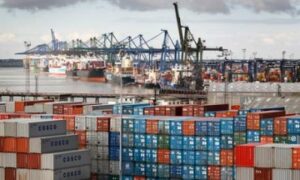The EU’s failure to conclude just five trade agreements with the United States, Japan, ASEAN, India and Mercosur has, according to the European Commission’s own figures, cost the UK 284,341 jobs.
The UK will be able to strike more valuable free trade deals than the EU has done to date.
The aggregate GDP of all the countries with which the EU had a trade agreement in force in January 2014 was $7.7 trillion. By contrast, the aggregate GDP of all countries with which Chile had trade agreements was $58.3 trillion. The figure for South Korea was $40.8 trillion and that for Switzerland was $39.8 trillion.
It is possible to strike free trade deals very quickly.
Oxford Economics has said that ‘an analysis of regional trade deals conducted over the past 20 years found an average duration of 28 months’.
There are many examples: the US-Australia free trade agreement (FTA) was concluded in less than two years; the Switzerland-China FTA was negotiated in a little over two years; and the US-Canada FTA was negotiated in less than two years.
It is in the commercial interests of the EU to strike a deal.
In 2015, the EU sold £67.8 billion more in goods and services to the UK than the UK sold to the EU.
The UK is the EU’s biggest single export market, bigger even than the United States.
Output has been growing, with production output up 2.0% in the last month. Manufacturing output is up by 2.3%, driven by higher exports.
The ONS states that: ‘Total production output is estimated to have increased by 2.0% in April 2016 compared with March 2016′.
Manufacturing output ‘increased by 2.3%, the largest rise since July 2012’. ‘Anecdotal evidence suggested increased exports as a contributing factor’. This suggests that companies are continuing to engage in international commerce.
The ONS states that ‘Total production output is estimated to have increased by 1.6% in April 2016 compared with April 2015′.
Independent studies have found that: Over the years 1993 to 2011, the first 19 years of the Single Market, exports of goods from 27 non-member countries to EU members have grown at a faster rate than those of the UK and over the 11 years for which we have reasonable data, the services exports of 21 non-members have also done so’.







